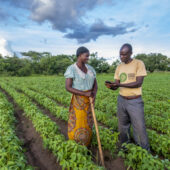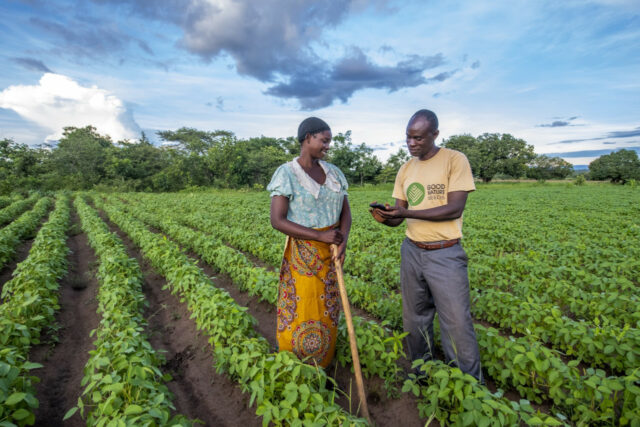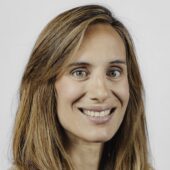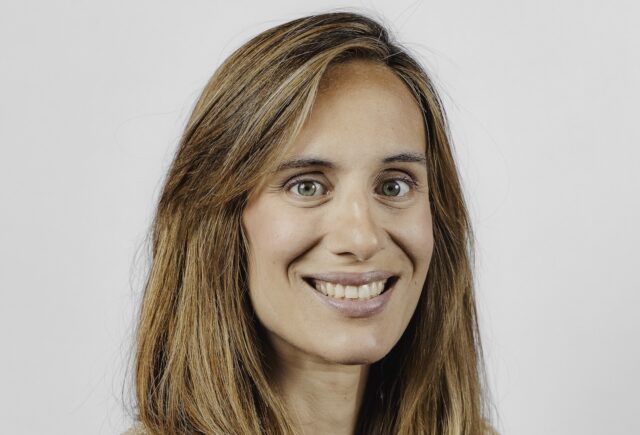No need to reinvent the wheel – in The Expert View impact investing pros share their lessons learned. Nico Blaauw tells us how the pandemic changed fundraising practices at Goodwell Investments.

CV Nico Blaauw
- Nico Blaauw is director marketing, communications and communities at Amsterdam-based Goodwell Investments.
- Prior to joining Goodwell in 2014 as ‘employee No 1’, Blaauw worked as director of communications for companies including Fortis, Nuon and Dow Chemical. He also founded a management consultancy focused on increasing impact.
- Blaauw holds a PhD in business economics from the University of Nijmegen and a Masters’ degree in marketing from TIAS Business school.
Goodwell, which provides early-stage equity to high-growth, high-impact businesses, has provided over €150mn in funding to 35 inclusive businesses across Asia and Africa since it was founded in 2006.
Over the years the company has attracted a unique mix of investors ranging from pioneering impact investors to entrepreneurs, foundations and family offices, as well as development finance institutions, funds-of-funds, banks, pension funds and other institutional investors.
When Covid hit, Goodwell Investments quickly changed its strategy towards fundraising. Nico Blaauw shares his lessons.
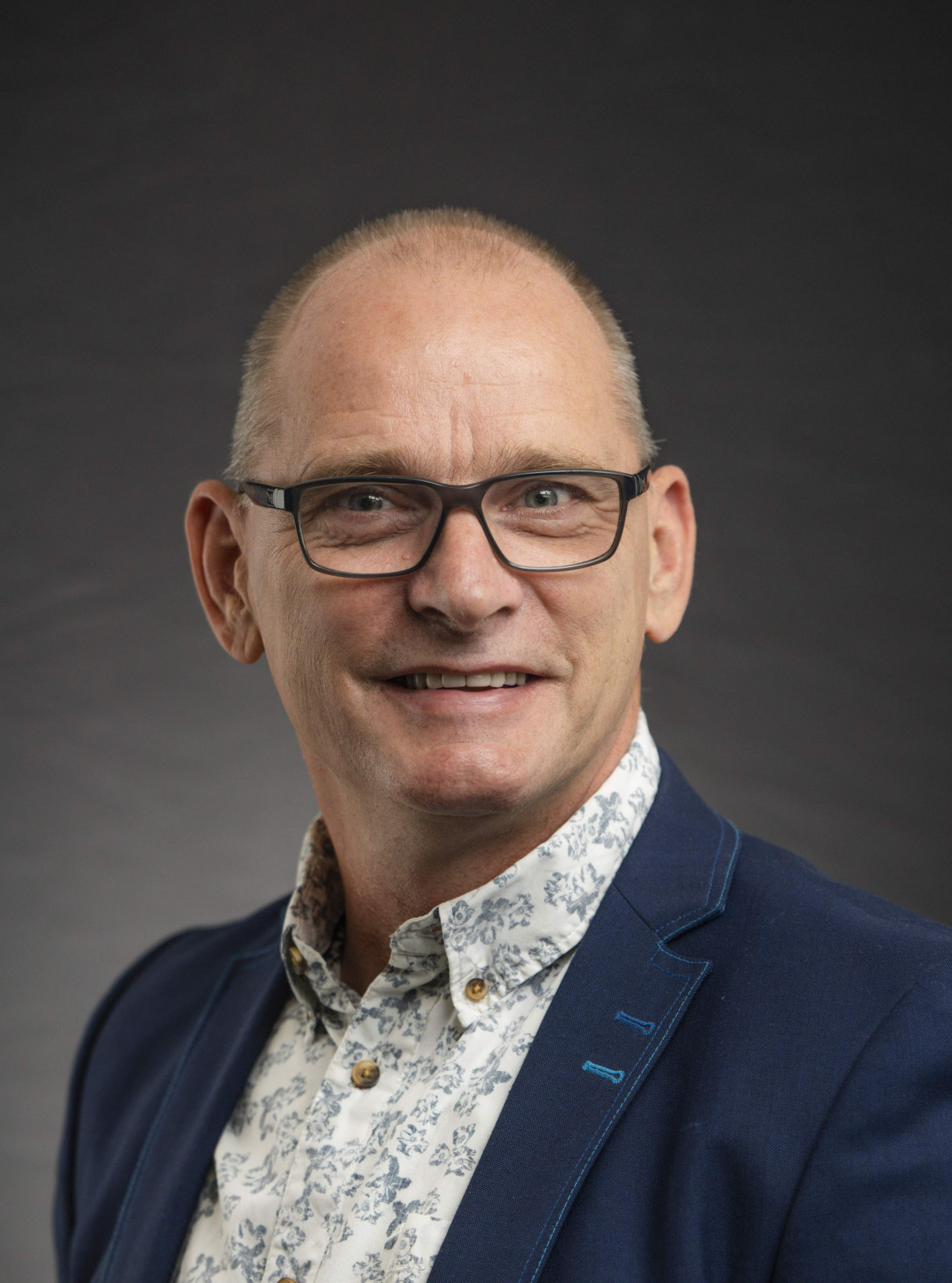
Adapt quickly to the new normal
“We see Goodwell as a bridge connecting two worlds. You have the entrepreneurs who need capital on the one hand, and the investors who provide it on the other. We regard these two groups as two separate entities, which are equally important to us when it comes to fundraising.”
“We have a ‘high touch,’ personal approach towards both the investors and the companies who need investment. We know everybody personally and have local teams on the ground.”
“We have always had a very close relationship with our investors, because we know our investors aren’t just financially involved, there is also an emotional connection. This approach was very successful both in dealing with private investors and institutional investors. Then came Covid.”
With country after country going into lockdown, Goodwell Investments realised a swift change was needed. “On March 16, 2020 we said: ‘OK, we think our institutional investors, ranging from banks, insurers, re-insurers and pension funds, will be sitting on their hands from now on. Everything will be on hold and they won’t be investing in any new funds anytime soon’,” recalls Blaauw.
“For these types of investors, it is even more important than for private investors they can do a thorough due diligence, travel and get to know the company on site. All of that has become a lot harder. So we very quickly decided to shift our focus instead to our private investors, such as family offices and foundations.”
“We expected that they would keep on investing. And we were proven right. In fact, a number of our larger private investors saw this crisis as a moment where they had to step up, or risk the world coming to a standstill.”
Investing in personal relationships is crucial
“Because of its personal approach to its investors, Goodwell was able to extend its private investor base in the past year despite the crisis.”
“Through friends of friends we got to know a lot of new parties, people and organisations, who have come on board even though we had never met them personally,” says Blaauw. “But there was already a relationship of trust because of what we had built in the past with our existing private investors.”
“From my time in corporate communications I have learnt that you don’t want to start building new relationships in a time of crisis. Those relationships should already be in place. Investing in a loyal network of investors over the years really paid off when the pandemic hit.”
“The second thing we did after Covid hit, was to make sure it was business as usual. Our business kept going because we were able to attract new investors, while we kept investing in new companies, plus we have local teams on the ground in Africa. We were able to show that to investors and that gave them confidence.”
‘We’re all in this together’
“The third thing we learnt from the pandemic was that the world became much smaller because we were all locked up in our houses, but it also became much bigger,” says Blaauw.
“Much more than before, people started to realise: ‘We’re all in this together’ and that this is a global issue that affects us all. A lot of people in our network started to realise that there was a bigger demand than ever before for basic goods and services, and that as impact investors, we have to act now.”
A fourth reason why Goodwell’s fundraising wasn’t affected by the crisis: “Our portfolios performed very well,” says Blaauw. Goodwell’s funds in Africa typically invest in companies in microfinance, food and agriculture, mobility and logistics that provide basic services and products for underserved people in Africa.
“These are all scalable companies that often use digital technology. And demand for basic goods and services soared during the crisis in emerging markets.”
Communications has changed forever
The pandemic has also changed the way Goodwell communicates with its investors and portfolio companies. Blaauw expects Goodwell to use a ‘hybrid’ form of communication and fundraising in the future and does not expect people to be “going back on an airplane as often and easily once this is over,” he says.
“It has become far easier the last 18 months to pick up the phone or schedule ‘a Teams call’ and talk to a pension fund in Sydney, whereas before, you would have tried to meet up somewhere and it would have taken much longer to get to know someone.”
“The communication skills of our fundraisers have become even more important than before when it comes to forging new relationships,” concludes Blaauw. “You now also have to be able to build connections and trust through a screen.”
